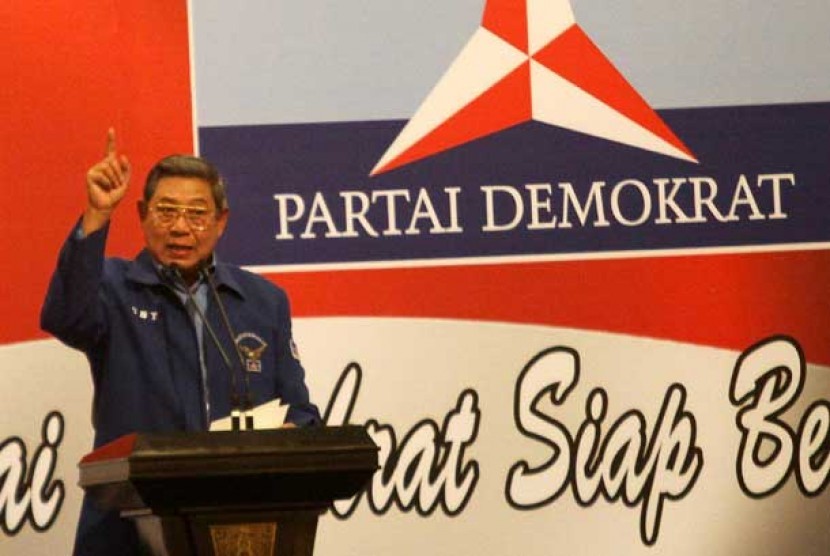REPUBLIKA.CO.ID, BOGOR -- Susilo Bambang Yudhoyono's speech about media attacks against his party, recently, reinforced public presumption that media war does exist in Indonesia.
This will be the strongest argument about media war because the allegation of media attact came from the higest ranking in Indonesia who also serve as Indonesia's president.
Despite the allegation, Yudhoyono did not point out which media did attack his party or hostile to him. So, this media war, if it's really available, is a kind of the undeclared media war. On his speech, the Chairman of Democratic Party claimed, his party does not control the media and were victims of several media attacks.
"Indeed, we do not have TV [station], newspapers, and online media. I and the party did not have much money to control TV contents and advertisements," said Yudhoyono when delivering his speech at the Democratic Party Cadres Gathering at Sentul International Convention Center (SICC), Bogor, West Java, Saturday (26/10).
He asked his party cadres in parliament or party's structure to strike back.
"Please do talk [O!] members of the House of Representatives. Speak [O! party's] leaders from center and local functionaries. Do defend the party," he said vehemently.
One of party's leaders Umar Arsal said, the statement of Yudhoyono should not be generalized by public.
He said, the criticism was more directed at the media controlled by political party leaders. "The fact is we know a lot of media controlled by political forces," Omar told reporters on the sidelines of the conference.
Umar said, Yudhoyono criticism was something reasonable.
According to him, the critic is just like a father's concern to his children who often attacked by media.
"As a human being, it's normal to have such anxiety. Indeed, [media] criticism was done insistently," he said without mentioning any specific media or owners.
Last July, Indonesia's Press Council member Nezar Patria said, in 2014 election, political media war will be increasingly tighter in comparison to previous five-year election.
"Especially, now, some presidential and vice presidential candidates are also owners of media corporations," he said in Jakarta as quoted by Antara.
Nezar said this practice has been common in some places and countries. He gave examples of some media owners who succeed in politics and gain worldwide popularity such as Silvio Berlusconi of Italy or Thaksin Shinawatra of Thailand. Indonesia will be experiencing the same phenomena, he said.
The signs of these phenomena, he said, were emerged when media owners nominate themselves as a candidate for president or vice president and they are happened to be owners of the most popular media on election issue.


